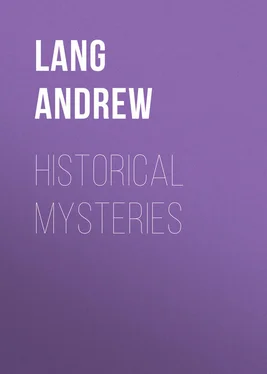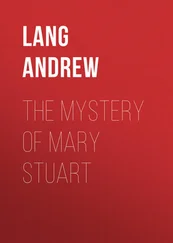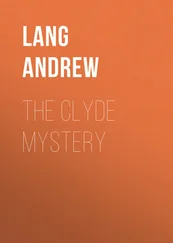Andrew Lang - Historical Mysteries
Здесь есть возможность читать онлайн «Andrew Lang - Historical Mysteries» — ознакомительный отрывок электронной книги совершенно бесплатно, а после прочтения отрывка купить полную версию. В некоторых случаях можно слушать аудио, скачать через торрент в формате fb2 и присутствует краткое содержание. Жанр: foreign_antique, foreign_prose, на английском языке. Описание произведения, (предисловие) а так же отзывы посетителей доступны на портале библиотеки ЛибКат.
- Название:Historical Mysteries
- Автор:
- Жанр:
- Год:неизвестен
- ISBN:нет данных
- Рейтинг книги:5 / 5. Голосов: 1
-
Избранное:Добавить в избранное
- Отзывы:
-
Ваша оценка:
- 100
- 1
- 2
- 3
- 4
- 5
Historical Mysteries: краткое содержание, описание и аннотация
Предлагаем к чтению аннотацию, описание, краткое содержание или предисловие (зависит от того, что написал сам автор книги «Historical Mysteries»). Если вы не нашли необходимую информацию о книге — напишите в комментариях, мы постараемся отыскать её.
Historical Mysteries — читать онлайн ознакомительный отрывок
Ниже представлен текст книги, разбитый по страницам. Система сохранения места последней прочитанной страницы, позволяет с удобством читать онлайн бесплатно книгу «Historical Mysteries», без необходимости каждый раз заново искать на чём Вы остановились. Поставьте закладку, и сможете в любой момент перейти на страницу, на которой закончили чтение.
Интервал:
Закладка:
In any case, in 1576 Philip was induced, by the intercession of Perez, to overlook the fault, and Escovedo, whose presence Don John demanded, was actually sent to him in December 1576. From this date both Don John and Escovedo wrote familiarly to their friend Perez, while Perez lured them on, and showed their letters to the King. Just as Charles I. commissioned the Duke of Hamilton to spy on the Covenanted nobles, and pretend to sympathise with them, and talk in their godly style, so Philip gave Perez orders to entrap Don John and Escovedo. Perez said: 'I want no theology but my own to justify me,' and Philip wrote in reply, 'My theology takes the same view of the matter as your own.'
At this time, 1577, Perez, though a gambler and a profligate, who took presents from all hands, must have meant nothing worse, on M. Mignet's theory, than to serve Philip as he loved to be served, and keep him well informed of Don John's designs. Escovedo was not yet, according to M. Mignet, an obstacle to the amours of Perez and the King's mistress, the Princess d'Eboli. Sir William Stirling-Maxwell, on the other hand, holds that the object of Perez already was to ruin Don John; for what reason Sir William owns that he cannot discover. Indeed Perez had no such object, unless Don John confided to him projects treasonous or dangerous to the Government of his own master, the King.
Now did Don John, or Escovedo, entrust Perez with designs not merely chivalrous and impracticable, but actually traitorous? Certainly Don John did nothing of the kind. Escovedo left him and went, without being called for, to Spain, arriving in July 1577. During his absence Don John defeated the Dutch Protestants in the battle of Gemblours, on January 31, 1578. He then wrote a letter full of chivalrous loyalty to Escovedo and Perez at Madrid. He would make Philip master indeed of the Low Countries; he asked Escovedo and Perez to inspire the King with resolution. To do that was impossible, but Philip could never have desired to murder Escovedo merely because he asked help for Don John. Yet, no sooner did Escovedo announce his return to Spain, in July 1577, than Philip, in a letter to Perez, said, 'we must hasten to despatch him before he kills us.' There seems to be no doubt that the letter in which this phrase occurs is authentic, though we have it only in a copy. But is the phrase correctly translated? The words ' priesa á despacherle antes que nos mate ' certainly may be rendered, 'we must be quick and despatch him ' (Escovedo) 'before he kills us .' But Mr. Froude, much more lenient to Philip than to Mary Stuart, proposes to render the phrase, 'we must despatch Escovedo quickly' ( i. e. send him about his business) 'before he worries us to death.' Mr. Froude thus denies that, in 1577, Philip already meant to kill Escovedo. It is unlucky for Mr. Froude's theory, and for Philip's character, if the King used the phrase twice . In March 1578 he wrote to Perez, about Escovedo, 'act quickly antes que nos mate , – before he kills us.' So Perez averred, at least, but is his date correct? This time Perez did act, and Escovedo was butchered! If Perez tells truth, in 1577, Philip meant what he said, 'Despatch him before he kills us.'
Why did Philip thus dread Escovedo? We have merely the published statements of Perez, in his account of the affair. After giving the general causes of Philip's distrust of Don John, and the ideas which a deeply suspicious monarch may very well have entertained, considering the adventurous character of his brother, Perez adds a special charge against Escovedo. He vowed, says Perez, that, after conquering England, he and Don John would attack Spain. Escovedo asked for the captaincy of a castle on a rock commanding the harbour of Santander; he was alcalde of that town. He and Don John would use this fortress, as Aramis and Fouquet, in the novel of Dumas, meant to use Belle Isle, against their sovereign. As a matter of fact, Escovedo had asked for the command of Mogro, the fortress commanding Santander, in the spring of 1577, and Perez told Philip that the place should be strengthened, for the protection of the harbour, but not entrusted to Escovedo. Don John's loyalty could never have contemplated the use of the place as a keep to be held in an attack on his King. But, if Perez had, in 1577, no grudge against Escovedo as being perilous to his alleged amour with the Princess d'Eboli, then the murderous plan of Philip must have sprung from the intense suspiciousness of his own nature, not from the promptings of Perez.
Escovedo reached Spain in July 1577. He was not killed till March 31, 1578, though attempts on his life were made some weeks earlier. M. Mignet argues that, till the early spring of 1578, Philip held his hand because Perez lulled his fears; that Escovedo then began to threaten to disclose the love affair of Perez to his royal rival, and that Perez, in his own private interest, now changed his tune, and, in place of mollifying Philip, urged him to the crime. But Philip was so dilatory that he could not even commit a murder with decent promptitude. Escovedo was not dangerous, even to his mind, while he was apart from Don John. But as weeks passed, Don John kept insisting, by letter, on the return of Escovedo, and for that reason, possibly, Philip screwed his courage to the (literally) 'sticking' point, and Escovedo was 'stuck.' Major Martin Hume, however, argues that, by this time, circumstances had changed, and Philip had now no motive for murder.
The impression of M. Mignet, and of Sir William Stirling-Maxwell, the biographer of Don John, is quite different. They hold that the Princess d'Eboli, in 1578, was Philip's mistress; that she deceived him with Perez; that Escovedo threatened to tell all, and that Perez therefore hurried on his murder. Had this been the state of affairs, would Escovedo have constantly accepted the invitations of Perez to dinner? The men would necessarily have been on the worst of terms, if Escovedo was threatening Perez, but Escovedo, in fact, kept on dining with Perez. Again, the policy of Perez would have been to send Escovedo where he wanted to go, to Flanders, well out of the way, back to Don John. It seems probable enough, though not certain, that, in 1567, the Princess and Philip were lovers. But it is, most unlikely, and it is not proved, that Philip was still devoted to the lady in 1578. Some of the Princess's family, the Mendozas, now wanted to kill Perez, as a dishonour to their blood. At the trial of Perez later, much evidence was given to show that he loved the Princess, or was suspected of doing so, but it is not shown that this was a matter about which Philip had any reason to concern himself. Thus it is not inconceivable that Escovedo disliked the relations between Perez and the Princess, but nothing tends to show that he could have made himself dangerous by revealing them to the King. Moreover, if he spoke his mind to Perez on the matter, the two would not have remained, as apparently they did, on terms of the most friendly intercourse. A squire of Perez described a scene in which Escovedo threatened to denounce the Princess, but how did the squire become a witness of the scene, in which the Princess defied Escovedo in terms of singular coarseness?
At all events, when Philip consulted the Marquis of Los Velez on the propriety of killing Escovedo rather than sending him back to Don John, the reasons, which convinced the Marquis, were mere political suspicions.
It was at that time a question of conscience whether a king might have a subject assassinated, if the royal motives, though sufficient, were not such as could be revealed with safety in a court of justice. On these principles Queen Mary had a right to take Darnley off, for excellent political causes which could not safely be made public; for international reasons. Mary, however, unlike Philip, did not consult her confessor, who believed her to be innocent of her husband's death. The confessor of Philip told him that the King had a perfect right to despatch Escovedo, and Philip gave his orders to Perez. He repeated, says Perez, in 1578, his words used in 1577: 'Make haste before he kills us.'
Читать дальшеИнтервал:
Закладка:
Похожие книги на «Historical Mysteries»
Представляем Вашему вниманию похожие книги на «Historical Mysteries» списком для выбора. Мы отобрали схожую по названию и смыслу литературу в надежде предоставить читателям больше вариантов отыскать новые, интересные, ещё непрочитанные произведения.
Обсуждение, отзывы о книге «Historical Mysteries» и просто собственные мнения читателей. Оставьте ваши комментарии, напишите, что Вы думаете о произведении, его смысле или главных героях. Укажите что конкретно понравилось, а что нет, и почему Вы так считаете.












